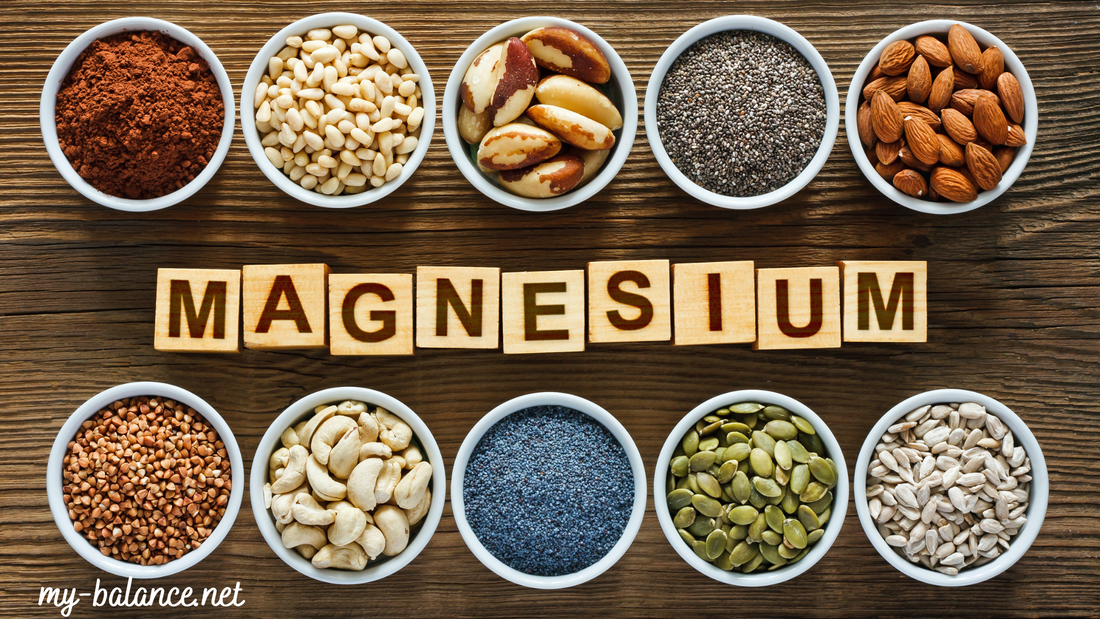
Why Is Magnesium Glycinate Good for Your Health?
Share
Magnesium is your body's fourth most prevalent mineral. It plays numerous important roles in the health of your body and brain. It may be found in numerous foods, including leafy greens, nuts, seeds, and beans, but even though many individuals don't consume enough of it daily.
Read on to learn why magnesium is good for your health. Also, where can you get magnesium to meet your body's needs?
The Benefits of Magnesium for Your Health
Magnesium is found in every cell of your body and is essential for healthy functioning. The bones contain around 60% of the magnesium in the body, whereas muscle and soft tissue cells and fluids, including blood, contain nearly 40%.
Here are some of the science-based benefits why magnesium is important.
Takes Part in Hundreds of Reactions
One of its core roles is to act as a cofactor in biological reactions performed by enzymes. It is involved in about 600 biochemical reactions in your body, including those that control blood glucose, blood pressure, protein synthesis, brain function, muscle and nerve function, and energy metabolism.
Lowers Depression and Anxiety
Magnesium is crucial for brain function and mood, and deficiency is linked to an increased risk of depression. In addition, a deficiency of magnesium may make your body more sensitive to stress, which can worsen anxiety symptoms. In a randomized, controlled study of depressed older adults, 450 mg of magnesium daily improved mood as effectively as antidepressant drugs. Moreover, studies suggest magnesium helps prevent and relieve anxiety and migraines.
Improves Bone Health
Magnesium is vital for maintaining healthy bones and preventing bone loss. As mentioned above, 60% of magnesium in the body is located in the bones. Studies relate low amounts of this mineral to osteoporosis, a disease that makes bones brittle and fragile. In addition, a recent meta-analysis of 12 studies found a correlation between greater magnesium intake and higher bone mineral density in the fracture-prone hip and femoral neck.
Exhibits Anti-Inflammatory Properties
Low magnesium intake is related with chronic inflammation, one of the underlying causes of aging, obesity, and chronic illness. In one study, children with low blood magnesium had high inflammatory marker CRP levels. Their blood sugar, insulin, and triglycerides levels were also higher. Supplementing magnesium lowers CRP and other inflammatory markers in elderly, overweight, and prediabetic people.
Supports Adequate Sleep
Magnesium supplements are a popular natural sleep aid. This is because magnesium modulates numerous sleep-related neurotransmitters, including gamma-aminobutyric acid. Research on nearly 4,000 adults found a correlation between higher consumption of magnesium and improvements in sleep quality and quantity.
Enhances Athletic Performance
During exercise, you require more magnesium than while you're resting. Magnesium facilitates the movement of blood sugar into muscles and the elimination of lactate, which can accumulate during activity and produce tiredness. Studies reveal magnesium supplementation may improve exercise performance in older persons and those with a magnesium deficit. A study of 2,570 women linked magnesium to enhanced muscle mass and power.
Where Can You Get Magnesium
You can't have good health if your body isn't getting enough magnesium. Men should consume 400–420 mg every day, while women should consume 310–320 mg. According to studies, more than half of individuals in the United States don't get enough magnesium daily.
To meet your magnesium needs, you can eat foods high in magnesium (like almonds, peanuts, dark chocolate, pumpkin seeds, etc.) and take magnesium supplements. Choose magnesium glycinate since it is easily absorbed and tolerated by the body. Try Magnesium Glycinate by My Balance Nutrisentials as it is a premium product with pure and high-quality magnesium manufactured in FDA-approved facilities.
"These statements have not been evaluated by the Food and Drug Administration. This product is not intended to diagnose, treat, cure or prevent any disease.”
